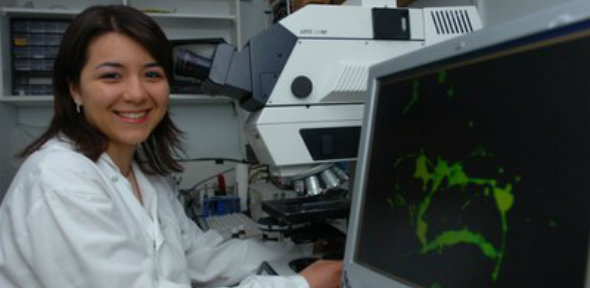Cancer patients may receive a range of services, treatments and care, including diagnosis, treatments and therapies, follow-up aftercare and palliative care.
Diagnosis
It is important to accurately diagnose cancer, so that the most appropriate treatment can be given.
When cancer is suspected, the doctor will take a medical history, as the nature of specific symptoms (fatigue, weight loss, unexplained anemia, fever of unknown origin and other signs) may provide the first indicator of cancer.
Once cancer is suspected, the following diagnostic methods may be used to find out what type the cancer is, where it started and how far it has spread (i.e. establish the stage of the cancer):
- Blood tests: detect tumour specific markers can be used to provide evidence for the presence of certain types of cancer;
- Biopsy: either incisional or excisional;
- Endoscopy: either upper (via mouth) or lower (via rectum) gastrointestinal, bronchoscopy (via lung), or nasendoscopy (via nose);
- Nuclear medicine: Scintigraphy, Single Photon Emission Computed Tomography, Positron emission tomography and other methods of nuclear medicine;
- Radiological techniques and scans: X-rays, CT scanning, MRI scanning and ultrasound scans.
Some of the above diagnostic equipment (especially imaging by CT scanning) is also used to determine whether the cancer is operable, i.e. whether the malignancy can be surgically removed in its entirety.
Usually, a 'tissue diagnosis' from a biopsy is essential for proper identification and staging of the type of cancer present.
Cancer staging is a way of describing the size of a tumour and how far it has grown. Staging is important because it helps the specialist decide which treatments you need. For information about cancer staging, including what it is, why it is important and which systems are used in the UK, see the Cancer Research UK website.
An exact diagnosis is not always possible and the therapy given is based on the medical history and other available evidence. Sometimes a metastatic lump (pathological lymph node) is found (often in the neck) for which a primary tumor cannot be identified. This is called a 'carcinoma of unknown primary' and treatment is based on where the likely origin of the primary is.
Treatments & Therapies
Treatments and therapies depend on the nature of the tumour and how advanced it is (stage). If a cancer is just in one place, then a local treatment such as surgery or radiotherapy may be enough to get rid of it completely. If a cancer has spread, then a combination of a systemic treatment and local treatment will be needed. 'Local' means treats just one area of the body, 'Systemic' means treats the whole body, e.g. chemotherapy is a systemic treatment as it circulates throughout the body in the bloodstream.
The following therapies may be used:
- Chemotherapy and radiotherapy: are used as a first-line radical therapy for a number of cancers. They are also used for adjuvant therapy, i.e. when the tumour has been completely surgically removed surgically but there a risk that it will recur. Chemotherapy and radiotherapy are also used for palliative treatment, where disease is clearly incurable.
- Hormone treatment: is an established and commonly treatment for breast and prostate cancer.
- Monoclonal antibody treatments: are a rapidly expanding method of treatment for a number of cancers, e.g .for lymphoma (Rituximab), and breast cancer (Trastuzumab).
- Surgery: is used is to remove a tumors and also for palliative treatment of some of cancers, e.g. to relieve problems caused by some brain tumours.
For information about the therapies available at Addenbrooke's Hospital, see the Cancer Services Division website.
Follow-up aftercare
Oncologists are also responsible for the follow-up after care of cancer patients who have been successfully treated. The length of the follow-up care depends on the nature of the cancer, it may last a few years or remain 'life long'. This sort of long-term follow-up also helps in analysis of survival and recurrence of patients' cancers after initial successful treatment.
Palliative care
Palliative care is the active holistic care of patients with advanced progressive illness. Management of pain and other symptoms and provision of psychological, social and spiritual support is paramount for patients and their families.
Ongoing problems associated with progressive cancer may include pain, nausea, anorexia, fatigue, immobility, and depression. These problems are addressed by a multidisciplinary cancer care team, in which palliative carespecialists play an essential part.
Palliative care services may be less hospital based than oncology, with nurses and doctors visiting patients at home.
For information about palliative care provided at Addenbrooke's Hospital, see their website.

